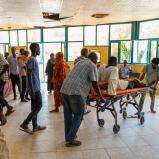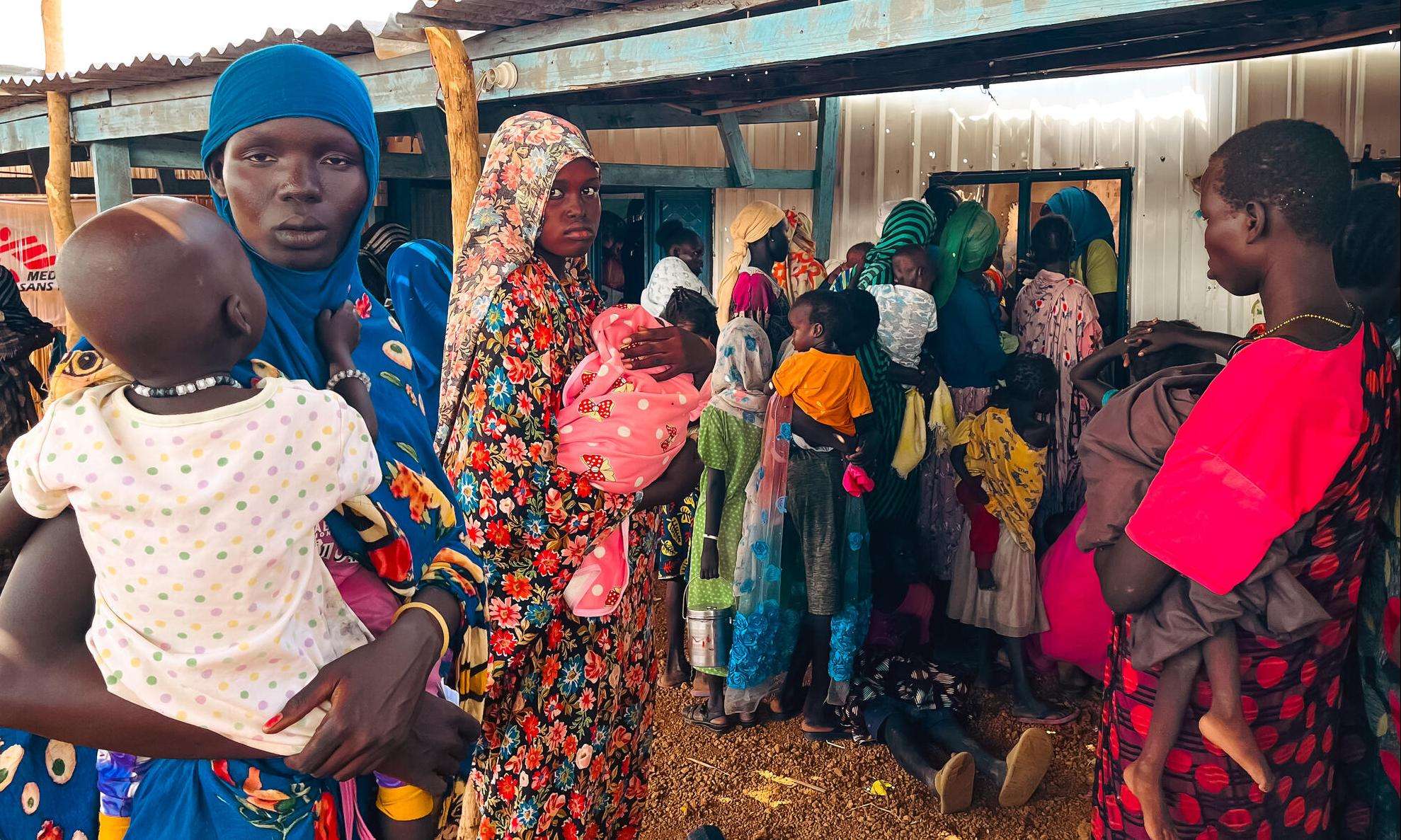KHARTOUM/NEW YORK, September 28, 2023—Displaced people in White Nile state, Sudan, are in urgent need of humanitarian aid as they shelter in and around camps originally built for South Sudanese refugees. Doctors Without Borders/Médecins Sans Frontières (MSF) staff are reporting immense needs for food, water, and medical care as the number of displaced people and refugees now far exceeds the capacity of the camps.
Aisha Abdelrahman Elrasheed, MSF health promoter, provided the following account:
I can’t find the right words to describe the conditions people are living in.
Five months into the conflict, the situation has reached a critical point. I’ve witnessed women giving birth and caring for their newborns in overcrowded and overheated tents, without access to clean water or proper sanitation. People have lost their jobs and livelihoods, and what makes it even worse is that no one knows when this situation will end.
Despite the volume of work, we at MSF are doing our best to provide humanitarian assistance in three camps in White Nile state. The scale of the needs here is overwhelming, and assistance is falling short of what is required.
I, too, am an internally displaced person, and I understand the struggles of the community on a personal level. As a health promoter, my job is to provide health education and identify the social aspect of people's needs.
In the Alagaya camp, which is the second largest refugee camp in the White Nile state, I met a mother of three who had fled the conflict in Khartoum. Her youngest child was suffering from malnutrition, and it was clear to the doctors that we would need to refer the child to a hospital outside the camp for proper treatment. However, it’s common for mothers to be reluctant to leave their families and children to make the trip, and she was no exception.
I spent hours talking to her, explaining the benefits of taking her child to the hospital and assuring her that MSF would provide transportation and medication. She hesitated because she didn't want to leave her other two children in the camp. Once we assured her that she would be able to travel with all her children, she agreed.
Upon her return, to my surprise, all of her children were sick. I asked her why she hadn’t informed us about the state of the other two children, and it turned out she thought we wouldn’t provide care for all of them. Eventually, we managed to arrange referrals to the hospital for all her children.
MSF in White Nile state
White Nile state hosts a significant portion of more than four million people who have been internally displaced across Sudan over the past five months. According to local authorities, nearly 400,000 people are living across 10 refugee camps as of September.
Working alongside the Sudanese Ministry of Health staff, MSF is providing health care and responding to water, sanitation, and hygiene needs in Kwor Ajwal, Al Alagaya, and Um Sangoo camps. In August, MSF provided 20,608 medical consultations, including for malaria, measles, malnutrition, pre- and postnatal care, and mental health, and vaccinated 13,474 children against measles.





